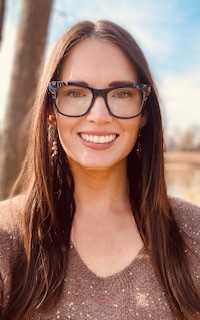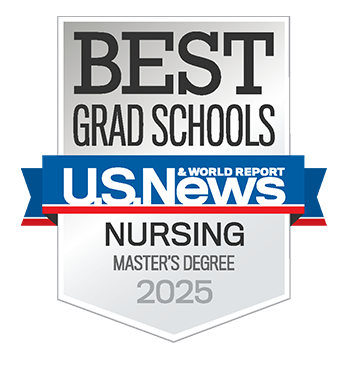MSN Healthcare Organizational Leadership
Need your questions answered?
OVERVIEW
Make an Impact
The MSN Healthcare Organizational Leadership track prepares nurses to lead, innovate, and serve in healthcare systems. It opens doors to leadership positions in health education, program development, consultation, and administration. Developed and directed by internationally-recognized Johns Hopkins nursing faculty, the program taps nursing’s unique perspective at the front line of patient care to manage, evaluate, and improve an evolving health care delivery system.
Students earning a MSN with a focus in Healthcare Organizational Leadership will be immersed in the learning of evidence-based decision making and outcomes management. With modern technology ever evolving, students can become facilitators in innovative redesigns of health care delivery systems while emphasizing nursing core values of quality care. Graduates will be ready to lead meaningful change, drive interdisciplinary collaboration, and transform healthcare systems.
Graduates are eligible to apply for certifications available for nurse executives: American Nurses Credentialing Center, American Organization for Nursing Leadership.
Program Details
Tuition & Fees
Estimated Tuition Cost: $1,995 per credit See Cost of Attendance Details
Financial Aid: There are numerous options for financing your education including grants, scholarships, federal loans, and employment programs. Learn more.
Upcoming Application Deadlines
Fall entry: Jan 15
Requirements
Admission Criteria
Bachelor of Science in Nursing Degree or an entry-level nursing master’s degree from an ACEN or CCNE accredited college or university or an equivalent degree from a comparable foreign institution
Scholastic GPA of at least 3.0 on a 4.0 scale
Official Transcripts (from all previous colleges/universities)
Three letters of recommendation (both academic and professional references; check FAQs for detailed guidance on completing this requirement)
Goal Statement
Current Resume /CV (check FAQs for detailed guidance on completing this requirement)
Interview with faculty (if moved forward by admissions committee)
Applicants must submit evidence of current nursing license. Online students must have or obtain RN license from an authorized state.
Prerequisites
Undergraduate Statistics * Take at Hopkins Nursing. Course must be completed at a regionally accredited college or university with a letter grade of B or better. Grade of B- will not be accepted.
* Topics should include correlation and linear regression; experimental design such as t-tests, analysis of variance and chi-square; suggested departments: psychology, sociology, education, biology, and mathematics. Statistics courses offered by business, management, and economics departments are typically more theory-based and lack the experimental design component.
State-Specific Information for Online Programs
Students currently cannot conduct clinical activities in Louisiana. Johns Hopkins University is approved by the Washington State Board of Nursing to conduct practice experiences in the state of Washington for Washington residents. For more information, please contact an admissions representative. Students should be aware of additional state-specific information for online programs.
Student Sponsorship
This program does not qualify for F-1 or J-1 student sponsorship. Legal Permanent Residents and non-immigrants who are otherwise physically present in the U.S. and in a status that allows for full or part-time study, may pursue this program.
#1
No. 1 in the nation for its Doctor of Nursing Practice Program (DNP)
#2
No. 2 in the nation for its Nursing Master’s Program (MSN)
#3
No. 3 nursing school in the world, according to 2024 QS World University rankings
Curriculum
Healthcare Organizational Leadership
This program consists of 34 credits and 504 practice hours, and offers synchronous and asynchronous class sessions.
For students who started the program in 2023 or earlier, access your part time plan of study (POS) or full time plan of study through these links.
Full Time – starting Fall 2024
Leadership Role Identity and Career Development (2)
Leadership and Organizational Culture: Theories and Practice in Contemporary Healthcare (3)
Biostatistics for Evidence-Based Practice (3)
Healthcare Economics for Management and Practice (2)
Healthcare Organizational Leadership Practicum I (2, 112 practicum hrs)
Advanced Nursing Health Policy (2)
The Research Process and Its Application to Evidence-Based Practice (3)
Healthcare Finance (2)
Foundations of Healthcare Quality and Safety (2)
Healthcare Organizational Leadership Practicum II (3, 168 practicum hrs)
Leadership: Organizational Dynamics, Complexities, and Change (3)
Healthcare Organizational Leadership Practicum III (4, 224 practicum hrs)
Philosophical, Theoretical & Ethical Basis of Advanced Nursing Practice (3)
Part Time – starting Fall 2024
Healthcare Economics for Management and Practice (2)
Biostatistics for Evidence-Based Practice (3)
The Research Process and Its Application to Evidence-Based Practice (3)
Advanced Nursing Health Policy (2)
Health Finance (2)
Foundations of Healthcare Quality and Safety (2)
Leadership Role Identity and Career Development (2)
Leadership and Organizational Culture: Theories and Practice in Contemporary Healthcare (3)
- Philosophical, Theoretical & Ethical Basis of Advanced Nursing Practice (3)
Healthcare Organizational Leadership Practicum I (2, 112 practicum hrs)
Healthcare Organizational Leadership Practicum II (3, 168 practicum hrs)
Leadership: Organizational Dynamics, Complexities, and Change (3)
Healthcare Organizational Leadership Practicum III (4, 224 practicum hrs)
Please note, curriculum, credit hours, and sequencing are subject to change.
*Transfer of credit is granted on an individual basis. Please see the transfer of credit policy and complete the form to make a request.
“Little did I anticipate upon joining this program that it would mold me into the confident leader I am today. Surrounded by like-minded nurse leaders and supportive faculty, this invaluable experience has surpassed all expectations.” Katie Hegarty, RN, BSN, OCN, CBCN
Katie Hegarty, RN, BSN, OCN, CBCN
Engage with Us
Join us soon for a tour, on-campus event or a virtual visit.
Request Information
Speak with Admissions to learn more about our programs.
Virtual Info Sessions
See recordings of some of our recent virtual info sessions.
Tuition & Other Costs
Financial aid
View the costs for the MSN Healthcare Organizational Leadership Program.
2025-2026 Full-Time Track
2025-2026 Part-Time Track
Scholarships & Grants: Grants are awards based on financial need that do not have to be repaid. Many students also benefit from scholarships and awards based on merit. Learn more.
Loans: Many students will avail themselves of loans to help finance their School of Nursing education. If necessary, we encourage you to borrow only what is absolutely essential to cover your educational costs. Learn more.
Employment: Many students locate part-time employment to help pay education expenses. Numerous positions are available on campus and within various community based organizations. These jobs provide students with opportunities to gain practical work experience. Most positions are funded through the Federal Work-Study Program. Learn more.
Frequently Asked Questions
At least one letter should come from a recent or current direct supervisor/manager (the person who is responsible for your performance evaluation)
At least one letter should come from an academic faculty member who can speak to your ability to successfully complete a demanding graduate level academic and practice program.
The third letter can come from a second academic faculty member or an individual in a leadership position who can speak to your clinical abilities.
Personal references from colleagues, friends, or family members do not meet the requirement.
If you are unable to provide one of the reference letters above, please upload a statement of explanation to your application.
Please include the following information in your resume or CV:
Work experience (include dates, sites and locations; paid and unpaid; any residency participation)
Education Background
Scholarly activities (research, presentations, publications, honors, awards)
Professional activities (leadership, certifications, professional organization membership, service on committees)
Community Service/Volunteerism
There is an MSN Healthcare Organizational Leadership student organization that regularly meets to schedule virtual and in person meet ups to continue to get to know your cohort while developing working relationships.
This program does not require on-campus residencies and you will not be required to come to campus during your program of study.
Yes, the school of Nursing has several financial assistance programs that may include scholarships, grants, work-study, and student loans.
You are not required to submit GRE/GMAT scores. However, if you have taken the exams, you are more than welcome to submit them to be considered for review.
The full-time program of study allows less space in your schedule for work. Many students find it challenging to work while pursuing a full-time graduate program of study. The part-time MSN option allows more flexibility for students to continue working in their current position.
Practicum experiences are determined by the student’s area of focus, student interest/experience, site and preceptor availability, and the student’s programmatic needs. The student works collaboratively with the Track Director and the Clinical Placement Team to request sites and identify preceptors, with final approval by the Track Director. Following an orientation to the electronic software system, the student will be responsible to complete practicum requests and upload required school and site compliance documentation by the due date. The due date is prior to the semester that includes a practicum course. Students will be working with the Clinical Placement Team throughout the course of their program. The Clinical Placement Team participates in orientation, advising sessions, and immersions. The student is encouraged to work collaboratively and proactively with the Clinical Placement Team. An all-hands on approach yields optimal preceptor opportunities. Unauthorized states for clinicals include LA. Admitted students who decide to enroll will be required to sign the “Student Expectations in the Clinical Placements Process” document prior to their first term in the program. For more information on Clinical/Practicum Placement Services, visit https://nursing.jhu.edu/clinical-placement/.
You will complete 3 practicum courses during your program of study totaling 504 practice hours. You can precept under a variety of nursing leaders, including a Nursing Manager, Director of Nursing, and Chief Nursing Officer. You will work closely with the Clinical Placement team to set up your locations during your program.
Louisiana is the only unauthorized state to complete your practicum hours in this program. Additional RN licenses in surrounding states may be necessary to secure a practicum rotation. Students could expect to travel up to 90-minutes in order to have a secured location.
If you are pursuing the full-time MSN Healthcare Organizational Leadership program, your practicum will begin in your second semester. If you are pursuing the part-time program, your practicum hours will begin in the fifth semester.
